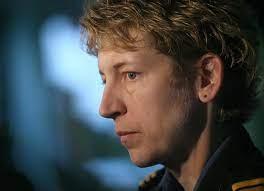Shomporko Online News Desk: Commodore Josee Kurtz, the first woman to lead the Royal Military College of Canada, may provide an outsider’s perspective, but she says she has no imminent plans to make major changes to the institution.
Kurtz was sworn in as the RMC’s first female commandant last week, and one of the few commandants who did not attend the 145-year-old college, which is responsible for generating the majority of the military’s officers.
Her arrival coincides with the Canadian Armed Forces’ most recent reckoning with sexual misbehavior in the ranks, particularly its handling of charges that some top officers participated in inappropriate — and in some cases criminal — conduct.
Many of those officers are RMC grads, which has prompted fresh questions about the role the college has played in contributing to what numerous experts and reviews have described as a highly sexualized culture in which leaders protect each other.
In an interview with The Canadian Press, Kurtz expressed her hope that her appointment would show others that they can have a successful military career and rise through the ranks no matter their backgrounds.
From Joliette, Que., Kurtz was the first woman to command a major Canadian warship when she was named captain of HMCS Halifax in 2009. She later became the first woman to lead a NATO fleet in 2019.
As for what her appointment means for RMC, “my experience probably brings a different lens, a different way of looking at issues and problems that could be a positive asset to the college,” she said.
Kurtz acknowledged the college will need to play its part in changing the military’s culture and said she will no doubt order some changes once she gets a better handle on the institution.
“We are engaging in a rescope or change of our culture that’s going to take time and sustained effort, and RMC is going to have to be part of that,” she said. “We’re going to have to implement some changes that are necessary.”
“We are engaging in a rescope or change of our culture that’s going to take time and sustained effort, and RMC is going to have to be part of that,” she said. “We’re going to have to implement some changes that are necessary.”
The new commandant will also be working with the military’s new officer responsible for leading culture change, Lt.-Gen. Jennie Carignan, and watching to see what recommendations come out of retired Supreme Court justice Louise Arbour’s ongoing review.

But Kurtz also said the college has successfully produced generations of officers for Canada, many of whom have moved on to successful careers after the military, and that she has no plans to make sweeping changes right off the bat.
“RMC is doing a great job of delivering on its mission,” she said.
And for anyone who thought she would bring “sweeping changes” because she is a woman and not an RMC graduate, “I don’t think that’s the point. I was appointed to RMC because my chain of command trusted in my background, my experience, and in my leadership.”
In the past, military authorities have downplayed the necessity for major changes to the military academy, particularly when it comes to sexual assault. The most recent instance was when then-Defense Secretary Jonathan Vance ordered a study of the organization in 2016-17.
Vance, who retired from the Armed Forces in April after stepping down as chief of the defense staff in January, is currently under military investigation for suspected sexual assault. He has categorically denied any misconduct.
Source_ The Canadian Press











